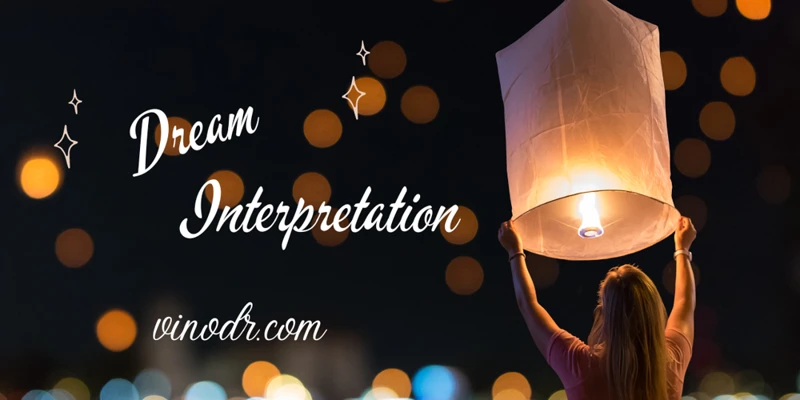It is a curious phenomenon that we often find ourselves soaring through the sky in our dreams, defying gravity and experiencing a sense of freedom that is unparalleled in waking life. These flying dreams can leave us feeling perplexed and eager to unlock their mysteries. What is the significance of these dreams? Are they symbolic, psychological, or rooted in cultural traditions? In this article, we will delve into the history, culture, and psychology of flying dreams, exploring their symbolism and the ways in which we can use them for self-reflection and personal growth. Join us on this journey as we unlock the secrets of flying dreams.
The History and Culture of Flying Dreams

Dreaming of flying is a widely known phenomenon that has been depicted in art, literature, and culture for centuries. Flying dreams are fascinating and leave us questioning what they could mean. How did our ancestors interpret these dreams? What significance do they hold in different cultures? Understanding the history and culture of flying dreams can give us insight into the significance of these dreams, and how they are understood from a cultural perspective. Let’s delve into the world of flying dreams and explore their history and cultural interpretations.
The Origins of Flying Dreams
It is unclear what the exact origins of flying dreams are, as they have been present throughout history and across various cultures. However, there are some theories and interpretations that attempt to shed light on the significance of these dreams.
| Theory | Description |
| Evolutionary Theory | Some believe that the ability to fly in dreams is rooted in our evolutionary history. Our ancestors may have dreamed of flying to escape predators or to find food. |
| Spiritual Interpretation | In many spiritual traditions, flying is associated with enlightenment or transcendence. Some believe that flying dreams are a sign of spiritual growth or transformation. |
| Psychological Explanation | From a psychological perspective, flying dreams may be related to our desire for freedom and control. They may also represent our unconscious mind working through problems or repressed emotions. |
Regardless of their origins, flying dreams remain a fascinating and often meaningful experience for many people. Exploring their history and cultural significance can offer a deeper understanding of the symbolism and potential interpretations of these dreams.
How Different Cultures Interpret Flying Dreams
When it comes to flying dreams, different cultures have unique interpretations of their significance. Here is a breakdown of some of the interpretations from various cultures:
| Culture | Interpretation |
|---|---|
| Ancient Egyptians | The ability to fly in a dream was considered a symbol of the individual’s ability to navigate the challenges of the afterlife. |
| Native Americans | Flying dreams were seen as a connection to the spiritual realms and a representation of the individual’s spiritual growth and transformation. |
| Chinese Culture | Flying in dreams was associated with the concept of Qi, or life force energy, and was seen as a symbol of spiritual ascension. |
| Islamic Culture | Flying dreams were seen as a symbol of the individual’s ability to overcome obstacles and spiritual growth, with the ability to fly representing transcending earthly limitations. |
| Hindu Culture | Flying dreams were interpreted as a sign of the individual’s spiritual journey and their ability to achieve enlightenment and oneness with the universe. |
| Greek Culture | Flying dreams were seen as a symbol of freedom and the pursuit of knowledge, as well as a representation of artistic inspiration and divine inspiration. |
As we can see, flying dreams are viewed differently depending on the culture in question. However, many of these interpretations emphasize spiritual growth, overcoming obstacles, and achieving a heightened sense of awareness and freedom.
The Psychology of Flying Dreams

Dreams have puzzled and intrigued humans for centuries. A particular type of dream that has elicited wonder is the experience of flying. Many people have experienced the sensation of soaring through the sky, whether effortlessly or with some physical exertion. The mystery of why we dream of flying and what it may signify has led to an exploration in various disciplines, including psychology. As such, the psychology of flying dreams raises questions that delve into the human psyche and may offer insights into our thoughts, actions, and emotions.
Theories on Why We Dream of Flying
Exploring the possible explanations behind why we dream of flying can be puzzling. Many theories have been put forth by scientists and psychologists over the years. Let’s take a closer look at some of them in the table below:
| Theory | Description |
|---|---|
| Evolutionary Theory | Some speculate that dreaming of flying is a residual memory of our ancestors’ ability to fly or glide while hunting or escaping predators. |
| Psychological Freedom | Others believe that the dream of flying represents the desire for freedom and liberation from real-life constraints. |
| Desire for Power | Some interpret flying as a search for power and control. |
| Unconscious Desire for Sex | Freudian theories suggest that flying in dreams can represent sexual satisfaction or a desire for it. |
| Mental and Physical Integration | Some psychoanalysts suggest that dreaming of flying represents mental and physical integration, or a need to balance the two. |
| Conquering Fears | Others speculate that the dream of flying relates to overcoming fears or anxieties. |
It is important to note that no one theory can completely explain the diverse range of flying dreams that individuals experience. Theories may also differ depending on a person’s cultural and personal background.
The Interpretations of Flying Dreams in Psychoanalysis
Psychoanalytic theory suggests that dreams, including flying dreams, are the mind’s way of expressing unconscious desires and conflicts. Sigmund Freud, the father of psychoanalysis, believed that flying dreams represented a desire to return to the safety and security of our mother’s womb. He saw the act of flying as an attempt to regress to a state of infancy, where we are free from the responsibilities and struggles of adult life.
However, Carl Jung, a protégé of Freud, had a different interpretation. Jung argued that flying dreams are a symbol of achieving personal growth and individuation. He believed that the act of flying represents the liberation of the spirit from the limitations of the physical body. Jung saw the ability to fly as a representation of spiritual transcendence and an indication of one’s journey towards self-realization.
Another interpretation comes from Wilhelm Stekel, a contemporary of Freud and Jung. Stekel believed that flying dreams were often associated with sexual desires and frustration. He saw flying as a form of sexual release, with the act of flying signifying an orgasmic release. According to Stekel, the dreamer’s ability to control their flight represented their ability to control their sexual desires.
There are a variety of interpretations of flying dreams in psychoanalysis, each highlighting different aspects of the dreamer’s unconscious desires and conflicts. It’s important to note that there is no one-size-fits-all interpretation and that every dreamer’s experience is unique to them. It’s essential to work with a trained therapist to explore the meanings behind one’s flying dreams.
| Psychoanalyst | Interpretation of Flying Dreams |
|---|---|
| Sigmund Freud | Flying represents a desire to return to the safety and security of the mother’s womb |
| Carl Jung | Flying represents achieving personal growth and spiritual transcendence |
| Wilhelm Stekel | Flying is associated with sexual desires and frustration, and represents a form of sexual release |
How Lucid Dreaming Relates to Flying Dreams
Lucid dreaming is the ability to recognize that you are dreaming while you are still in the dream state. It allows you to take control of your dream and manipulate the various elements within it. This is significant in relation to flying dreams because lucid dreaming can enhance and amplify the experience of flying. When you are aware that you are dreaming, you can consciously choose to fly in your dream and even change the way you fly. You can also choose the destination and the people or creatures you want to share the experience with.
However, not everyone is able to lucid dream, and it can take practice to develop the skill. Some people may also experience a fear of losing control in their dreams and may avoid lucid dreaming altogether. Nonetheless, for those who are able to master it, flying in a lucid dream can be a thrilling and empowering experience.
Lucid dreaming can also offer benefits beyond the enjoyment of flying in dreams. It can be used as a form of therapy to overcome fears and anxiety, as well as a tool for creative problem-solving and inspiration. By practicing lucid dreaming and controlling your dreams, you can learn to better understand your own thought processes and emotions. You can also use your dreams as a space for experimentation and exploration without any real-world consequences.
Lucid dreaming and flying dreams are closely related. Lucid dreaming allows individuals to consciously control and enhance their flying dreams, and it can also offer additional benefits beyond just the dream state. However, mastering the skill of lucid dreaming takes time and practice, and it may not be for everyone. Nonetheless, for those who are curious and dedicated, the benefits of lucid dreaming can be transformative.
The Symbolism of Flying Dreams

Dreams have always had an air of mystery and intrigue surrounding them. Some people view them as mere random firings of the brain during sleep, while others believe dreams carry important messages and symbolism. Flying dreams, in particular, are known to be some of the most exhilarating and puzzling dreams one can have. These dreams can be both liberating and confusing at the same time. Many people wonder what these dreams mean and what significance they hold. In this section, we will explore the symbolism behind flying dreams and try to decipher their hidden messages. We will delve into the cultural and psychological meanings of these dreams, as well as how they are related to freedom, independence, and even sexuality.
How Flying Relates to Freedom and Independence
Flying dreams can symbolize freedom and independence in various ways. Here are some possible interpretations:
- Breaking free from limitations: Flying can represent the ability to escape or transcend the boundaries that hold us back in waking life. These boundaries may be physical, social, emotional, or mental. For instance, someone who feels trapped in a dead-end job, a restrictive relationship, or a limiting belief system might have a flying dream as a way of expressing the desire to break free from those constraints. Flying can also signify the power to overcome fears, doubts, or obstacles that have impeded our progress.
- Experiencing liberation and joy: Flying can evoke a sense of liberation and joy that comes from feeling unencumbered and weightless. Flying dreams can be exhilarating, empowering, and fun, especially when accompanied by a sense of control and agency. The feeling of flying can be similar to the feeling of being in flow, when we are fully immersed in a creative or athletic activity that challenges us but also gives us a sense of mastery and pleasure.
- Gaining perspective and insight: Flying can provide a new perspective on our problems or relationships, as it allows us to see them from a higher vantage point. Flying can also stimulate our imagination and intuition, and invite us to explore new possibilities and directions that we might not have considered before. Flying can symbolize the expansion of our consciousness and the opening of our minds to new horizons.
Of course, not all flying dreams have a positive connotation. Some flying dreams can involve fear, danger, or loss of control, especially if we are not fully aware that we are dreaming or if we are having a nightmare. As with any dream symbol, the meaning of flying dreams depends on the context, the emotions and sensations involved, and the personal associations that we have with flying. However, overall, flying dreams can be seen as a symbol of our human aspiration to transcend limitations, seek adventure, and explore our own potential.
What Different Types of Flying Dreams Mean
Flying dreams can take on a variety of forms, each with its own unique meaning. Here are some common types of flying dreams and what they may signify:
| Dream Type | Meaning |
|---|---|
| Soaring through the Sky | This type of dream often represents a feeling of freedom and liberation. It may indicate that the dreamer has successfully overcome a difficult situation or obstacle in waking life. |
| Controlling Flight | If the dreamer is able to control their flight, it may suggest a sense of empowerment or mastery over their life circumstances. This type of dream could also represent a desire for control or a need to take charge in waking life. |
| Flying Away from Danger | If the dreamer is flying away from danger or something threatening, it could indicate a need for escape or avoidance in waking life. The dreamer may be facing a difficult situation or feeling overwhelmed by their circumstances. |
| Flying Upside Down or Losing Control | This type of dream may be a warning that the dreamer is feeling out of control or uncertain in their waking life. It may also indicate a fear of failure or the need to let go of perfectionism. |
| Flying with Another Person | If the dreamer is flying with another person, it may represent a close relationship or partnership in waking life. Alternatively, it could indicate a need for support or assistance from others. |
| Flying into Obstacles | If the dreamer is flying into obstacles such as trees, buildings, or walls, it may indicate a fear of failure or an inability to move forward in life. It could also represent hidden obstacles or challenges that the dreamer is facing. |
It’s important to remember that each dreamer may have their own unique interpretation and experience with flying dreams. Keeping a dream journal and reflecting on personal feelings and life circumstances can help to uncover the true meaning behind flying dreams.
The Relationship Between Flying Dreams and Sexuality
There is a complex relationship between flying dreams and sexuality that has been studied by psychologists and psychoanalysts. Here are some interesting points to consider:
- Freedom and Sensuality: Flying dreams often represent a sense of freedom and liberation, which can extend to the realm of sexuality. The ability to fly might symbolize overcoming sexual inhibitions and enjoying a more sensual experience. This may be particularly true for individuals who are not comfortable expressing their sexuality in waking life.
- Control and Power: Some psychologists have suggested that flying dreams can represent a desire for power and control, which can also be related to sexual desires. Individuals who feel powerless in their waking lives may find a sense of control and mastery over their own bodies and experiences in flying dreams.
- Sexual Imagery: Flying dreams may also include sexual imagery or content. Some individuals may experience a sense of arousal or sexual pleasure during flying dreams, which can result in orgasm or sleep arousal.
- Repressed Desires: Psychoanalysts have suggested that flying dreams can be linked to repressed sexual desires or frustrations. Individuals who have unresolved sexual conflicts or unfulfilled fantasies may experience flying dreams as a way of expressing these desires in a safe and controlled environment.
- Cultural Influences: The symbolism of flying dreams in relation to sexuality can also be influenced by cultural factors. For example, in many cultures, birds are associated with sexuality and fertility, which may be reflected in flying dreams.
The relationship between flying dreams and sexuality is complex and multifaceted, and may require further exploration and interpretation on an individual basis.
Using Flying Dreams for Self-Reflection and Growth
As we continue our journey into understanding flying dreams, it becomes clear that they hold a significant amount of meaning and insight into our subconscious minds. One way to tap into this valuable resource is by using flying dreams as a tool for self-reflection and personal growth. Through the use of dream journaling and reflection, we can uncover deeper meanings and patterns that can help us better understand ourselves, our emotions, and our life circumstances. In this section, we will explore the various ways in which flying dreams can facilitate personal growth and enlightenment.
Keeping a Dream Journal and Identifying Repeated Symbols
One useful method for exploring the hidden messages in flying dreams is to keep a dream journal and identify repeated symbols. Keeping a dream journal helps you remember and analyze the details of your dream, which can uncover patterns and themes that may be significant in your waking life.
To start, write down your vivid flying dreams immediately upon waking. Be sure to take note of any emotions, sensations, or people who appear in your dream. Even seemingly insignificant details could provide clues to the deeper meaning behind your flying dream.
As you record your dreams over time, look for recurring symbols or themes related to flying. For example, you may find that you often fly over water or mountains, or that you are always accompanied by a certain person or animal while flying. These symbols could represent important aspects of your own personality or subconscious desires.
Once you have identified any repeated symbols, take some time to reflect on their possible meanings. Consider how they relate to your current life circumstances, relationships, or emotions. For example, if you frequently dream of soaring over mountains, it could symbolize that you are overcoming obstacles in your life. Reflecting on these symbols can help you gain deeper insight into your own psyche and improve your self-awareness.
Reflecting on Personal Feelings and Life Circumstances
One way to use flying dreams for self-reflection and growth is by reflecting on how they relate to our personal feelings and life circumstances. Reflecting on our personal feelings can help us better understand the symbolism behind our flying dreams.
To start reflecting on our personal feelings and life circumstances, we can ask ourselves questions such as:
- Am I feeling restricted or free in my waking life?
- What challenges am I facing that might be represented by flying or soaring in my dreams?
- Do I feel confident and empowered, or do I feel anxious and overwhelmed?
By answering these questions in a dream journal or reflecting on them during our waking hours, we can uncover the underlying emotions and experiences that our flying dreams are representing.
For example, if we repeatedly dream of flying but are afraid of heights in our waking life, this could signify a desire to overcome our fears and feel more empowered in our daily lives. Alternatively, if we are going through a difficult time at work, our flying dreams could represent a need for escape or a desire to rise above the challenges we are facing.
By reflecting on the symbolism of our flying dreams and how they relate to our personal feelings and life circumstances, we can gain deeper insights into our subconscious mind and use these insights for personal growth and transformation.
Conclusion
In conclusion, it is clear that flying dreams hold significant meaning and symbolism in various cultures and psychological theories. From the origins of flying dreams to their interpretations in psychoanalytic theories, it is evident that dreaming of flying represents a desire for freedom, independence, and personal growth.
Additionally, the symbolism of flying dreams can vary depending on the specific type of flying experienced in the dream. For example, flying with ease and control can represent confidence and mastery, while a struggle to gain altitude could indicate feelings of insecurity or self-doubt.
Furthermore, reflective techniques such as keeping a dream journal and identifying repeated symbols can provide valuable insights into the subconscious mind and personal experiences. By reflecting on emotions and life circumstances in relation to flying dreams, individuals may be able to identify areas for growth and self-improvement.
Overall, unlocking the mysteries of dreaming and understanding the significance of flying dreams can offer valuable insights and self-reflection opportunities for individuals. By delving into the cultural and psychological significance of flying dreams, individuals may gain a better understanding of their subconscious desires and experiences.
Frequently Asked Questions
What does it mean to dream of flying?
Dreaming of flying can have different meanings, including feelings of freedom, power, and escape from daily stresses or limitations.
Is it common to dream of flying?
Studies have found that flying dreams are quite common, with up to 70% of people experiencing them at some point in their lives.
Can flying dreams be lucid dreams?
Yes, flying dreams can be lucid dreams, which means that the dreamer is aware that they are dreaming and may be able to control the dream.
Do different cultures interpret flying dreams differently?
Yes, different cultures have their own interpretations of flying dreams, which can vary depending on their beliefs and traditions.
What is the relationship between flying dreams and sexuality?
Some theories suggest that flying dreams can represent sexual desires and fantasies, while others see them as a symbol of spiritual transcendence.
Are there any negative interpretations of flying dreams?
While many people view flying dreams as positive experiences, some interpretations suggest that they can also represent a fear of losing control or a sense of vulnerability.
Can analyzing flying dreams help with personal growth?
Yes, reflecting on the symbolism and meaning of flying dreams can provide insights into one’s subconscious thoughts and feelings, and help with personal reflection and growth.
What is the relationship between flying dreams and emotions?
Flying dreams can be associated with a range of emotions, including excitement, exhilaration, and joy, as well as fear, stress, and anxiety.
What role does dreaming play in mental health?
Dreaming is thought to play a role in mental health, as it can help process and integrate emotional experiences, and provide insight into unconscious thoughts and feelings.
How can keeping a dream journal help with analyzing flying dreams?
A dream journal can help with identifying recurring symbols and themes in flying dreams, and provide a record of personal emotions and experiences that can aid in self-reflection and growth.








